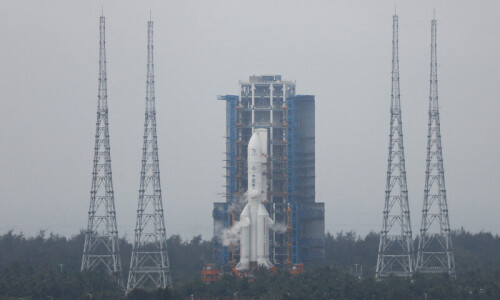PARIS: The combination of “warp speed” advances in neurotechnology, such as brain implants or scans that can increasingly peek inside minds, and artificial intelligence poses a threat to mental privacy, Unesco warned on Thursday.
The UN’s agency for science and culture has started developing a global “ethical framework” to address human rights concerns posed by neurotechnology, it said at a conference in Paris.
Neurotechnology is a growing field seeking to connect electronic devices to the nervous system, mostly so far to treat neurological disorders and restore movement, communication, vision or hearing.
Recently neurotechnology has been supercharged by artificial intelligence algorithms which can process and learn from data in ways never before possible, said Mariagrazia Squicciarini, a Unesco economist specialising in AI.
“It’s like putting neurotech on steroids,” she said.
Published in Dawn, July 14th, 2023














































Dear visitor, the comments section is undergoing an overhaul and will return soon.